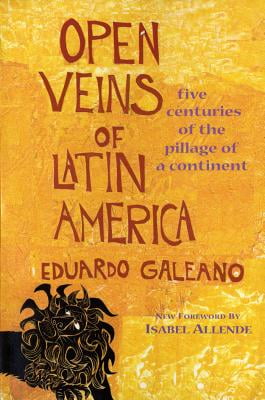

“But the winners happen to have won thanks to our losing: the history of Latin America's underdevelopment is, as someone has said, an integral part of the history of world capitalism's development.

It talked about something the public really needed to know more about and did it in an enticing way”, explains Uruguayan writer and journalist Roberto López Belloso.įocusing on the natural resources of the region that were commodified by foreign economic powerhouses, such as silver, gold, oil, cotton, coffee, fruits, and sugar, Galeano shows how the colonial situation was imposed and provided the foundation for the dependent capitalism installed in Latin American countries. “I think the main reason for the book’s endurance and significance was the combination of theme and style. In many interviews, Galeano declared that Open Veins was an unpretentious book, the outcome of his own need to dive into our America’s history and to fully understand it. Eduardo’s book is essential not only to understand Latin America but to understand life and the world”, asserts Brazilian writer and translator of many of Galeano’s texts to Portuguese, Eric Nepomuceno. “Eduardo has broken with all boundaries of style. A poetic, colloquial prose, deep historical research. A thorough journalistic investigation with historical data, anthropology, myths, and popular wisdom, the author’s narrative leads the reader into a path of worldly realities along with sublime experiences The book tells the history of exploitation in the continent whose richness has been bled dry since the 15th century. However, as Galeano himself wrote, life is made of “breath and despair” and April is also the month we celebrate the 50 years of Open Veins of Latin America, his first success, which was translated to over 20 languages. The Uruguayan journalist and writer of 33 books passed away six years ago of lung cancer.

April may be seen as a month of mourning, as every April 13th since 2015 marks another year since Eduardo Galeano’s departure.


 0 kommentar(er)
0 kommentar(er)
